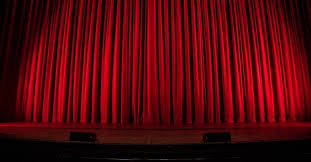Dynamic Opera Directors: Pioneering the Future

New opera directors, including Tobias Kratzer, Lydia Steier, and Simon Stone, are pushing the boundaries of the centuries-old art form. They are leaving their mark on opera with bold and innovative productions.
Kratzer’s Operatic Visions: Bold, Thought-Provoking, and Groundbreaking
Tobias Kratzer is a German opera director known for his innovative and thought-provoking productions. He uses video projections to create space, atmosphere, and comment on themes. For example, in his “Tristan und Isolde” at Bayreuth, he used waves to evoke the ocean.

Kratzer also challenges classics with unconventional interpretations. In his “Marriage of Figaro” at London’s Royal Opera House, he set the opera in an office and cast a black actor as the Count. Mixed reviews ensued, but the opera was talked about.
Kratzer is a leading figure in new opera directors. He takes risks and finds fresh, exciting ways to present opera. His work keeps opera alive in the 21st century.
Lydia Steier: Opera Director with a Fresh Perspective
Lydia Steier is acclaimed for her refreshing and thought-provoking opera interpretations. With experience in prestigious houses worldwide, her productions captivate with intellectual depth and artistic brilliance.
Steier’s minimalist staging prioritizes music and singers, allowing their power to resonate. For example, her 2018 Salzburg Festival production of “The Magic Flute” used simple white cubes to represent diverse realms.

She excels in portraying complex characters with sensitivity. Understanding their motivations and emotions, she helps singers bring authenticity and vitality to their roles. In her 2017 Cologne Opera production of “Turandot,” she presented a multifaceted and empathetic titular character.
Steier’s work leaves a mark on opera, attracting new audiences and redefining its possibilities.
Simon Stone: Redefining Opera through Innovation and Provocation
Simon Stone, an Australian opera director, is renowned for his innovative and thought-provoking productions. Embracing non-traditional staging techniques and sets, he fearlessly challenges opera conventions.

Critics have praised Stone’s work for its intelligence, originality, and striking visual flair. While some have accused him of being too experimental and alienating audiences, Stone staunchly defends his approach. He argues that he strives to engage opera audiences in new ways, making the art form more relevant for the 21st century.
Love it or hate it, Simon Stone is an undeniable force in the world of opera. Fearlessly taking risks and challenging the status quo, his work will undoubtedly continue to spark lively debates and discussions for years to come.

- Art
- Causes
- Best Offers
- Crafts
- Dance
- Drinks
- Film
- Fitness
- Food
- Games
- Festival
- Gardening
- Health
- Home
- Literature
- Music
- Networking
- Other
- Party
- Religion
- Shopping
- Sports
- Theater
- Wellness



